Diego Alvarez-Estevez
Multi-task deep-learning for sleep event detection and stage classification
Jan 16, 2025Abstract:Polysomnographic sleep analysis is the standard clinical method to accurately diagnose and treat sleep disorders. It is an intricate process which involves the manual identification, classification, and location of multiple sleep event patterns. This is complex, for which identification of different types of events involves focusing on different subsets of signals, resulting on an iterative time-consuming process entailing several visual analysis passes. In this paper we propose a multi-task deep-learning approach for the simultaneous detection of sleep events and hypnogram construction in one single pass. Taking as reference state-of-the-art methodology for object-detection in the field of Computer Vision, we reformulate the problem for the analysis of multi-variate time sequences, and more specifically for pattern detection in the sleep analysis scenario. We investigate the performance of the resulting method in identifying different assembly combinations of EEG arousals, respiratory events (apneas and hypopneas) and sleep stages, also considering different input signal montage configurations. Furthermore, we evaluate our approach using two independent datasets, assessing true-generalization effects involving local and external validation scenarios. Based on our results, we analyze and discuss our method's capabilities and its potential wide-range applicability across different settings and datasets.
Benchmarking quantum machine learning kernel training for classification tasks
Aug 17, 2024Abstract:Quantum-enhanced machine learning is a rapidly evolving field that aims to leverage the unique properties of quantum mechanics to enhance classical machine learning. However, the practical applicability of these methods remains an open question, particularly in the context of real-world datasets and the limitations of current quantum hardware. This work performs a benchmark study of Quantum Kernel Estimation (QKE) and Quantum Kernel Training (QKT) with a focus on classification tasks. Through a series of experiments, the versatility and generalization capabilities of two quantum feature mappings, namely ZZFeatureMap and CovariantFeatureMap, are analyzed in this context. Remarkably, these feature maps have been proposed in the literature under the conjecture of possible near-term quantum advantage and have shown promising performance in ad-hoc datasets. This study explores both artificial and established reference datasets and incorporates classical machine learning methods, specifically Support Vector Machines (SVMs) and logistic regression, as baseline comparisons. Experimental results indicate that quantum methods exhibit varying performance across different datasets. While they outperform classical methods in ad-hoc datasets, they frequently encounter difficulties in generalizing to unseen test data when dealing with reference classical datasets, even if achieving high classification accuracy on the training data. It is suggested that the choice of the feature mapping and the optimization of kernel parameters through QKT are critical for maximizing the effectiveness of quantum methods.
Hybrid Classic-Quantum Computing for Staging of Invasive Ductal Carcinoma of Breast
Mar 17, 2023Abstract:Despite the great current relevance of Artificial Intelligence, and the extraordinary innovations that this discipline has brought to many fields -among which, without a doubt, medicine is found-, experts in medical applications of Artificial Intelligence are looking for new alternatives to solve problems for which current Artificial Intelligence programs do not provide with optimal solutions. For this, one promising option could be the use of the concepts and ideas of Quantum Mechanics, for the construction of quantum-based Artificial Intelligence systems. From a hybrid classical-quantum perspective, this article deals with the application of quantum computing techniques for the staging of Invasive Ductal Carcinoma of the breast. It includes: (1) a general explanation of a classical, and well-established, approach for medical reasoning, (2) a description of the clinical problem, (3) a conceptual model for staging invasive ductal carcinoma, (4) some basic notions about Quantum Rule-Based Systems, (5) a step-by-step explanation of the proposed approach for quantum staging of the invasive ductal carcinoma, and (6) the results obtained after running the quantum system on a significant number of use cases. A detailed discussion is also provided at the end of this paper.
Inter-database validation of a deep learning approach for automatic sleep scoring
Sep 22, 2020



Abstract:In this work we describe a new deep learning approach for automatic sleep staging, and carry out its validation by addressing its generalization capabilities on a wide range of sleep staging databases. Prediction capabilities are evaluated in the context of independent local and external generalization scenarios. Effectively, by comparing both procedures it is possible to better extrapolate the expected performance of the method on the general reference task of sleep staging, regardless of data from a specific database. In addition, we examine the suitability of a novel approach based on the use of an ensemble of individual local models and evaluate its impact on the resulting inter-database generalization performance. Validation results show good general performance, as compared to the expected levels of human expert agreement, as well as state-of-the-art automatic sleep staging approaches
Dealing with the database variability problem in learning from medical data: an ensemble-based approach using convolutional neural networks and a case of study applied to automatic sleep scoring
Jun 16, 2019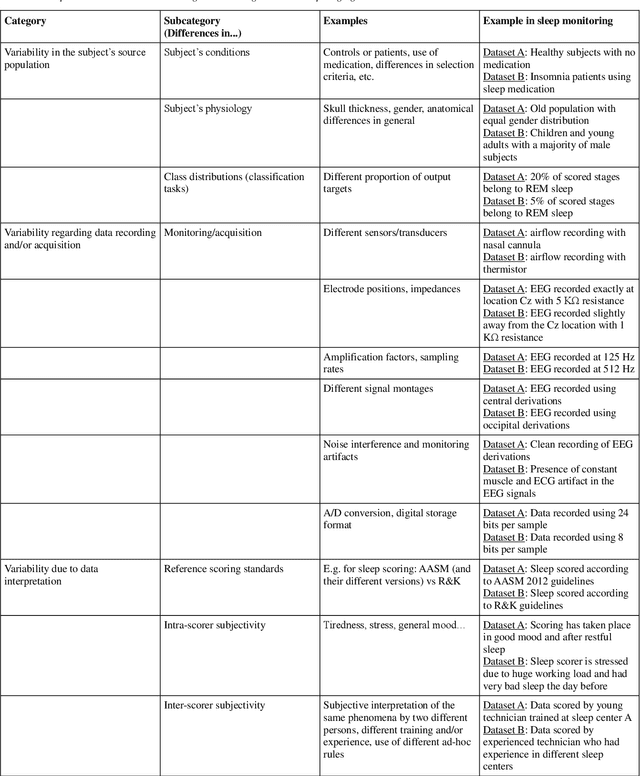

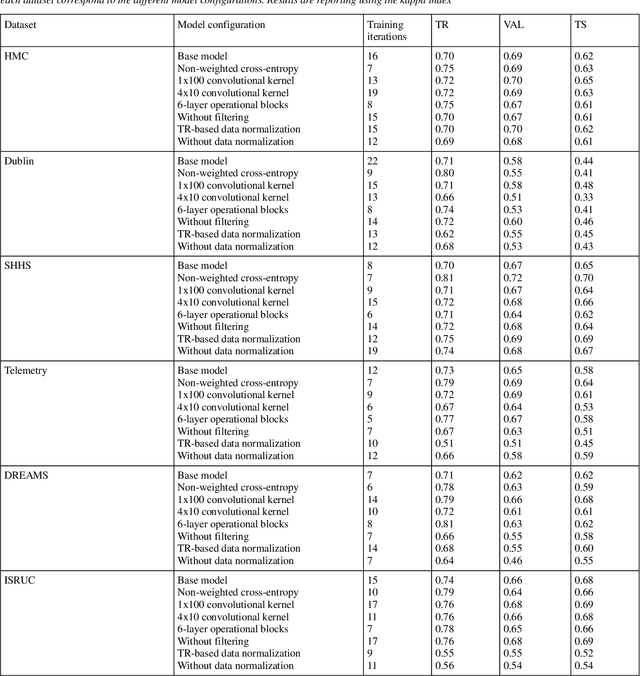
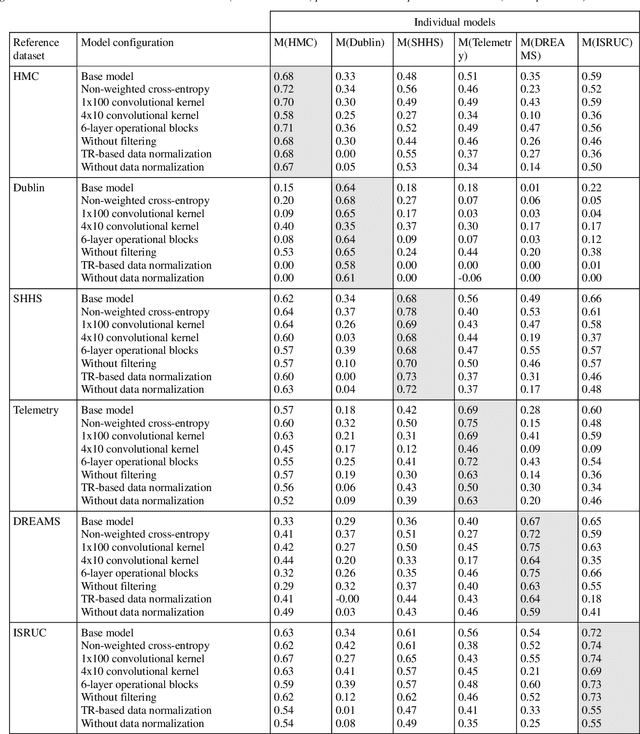
Abstract:In this work we examine the problematic associated to the development of machine learning models to achieve robust generalization capabilities on common-task multiple-database scenarios. Referred as the ''database variability problem'', we focus on a specific medical domain (sleep staging in Sleep Medicine) to show the non-triviality of translating the estimated model's local generalization capabilities to independent external databases. We analyze some of the scalability problems when multiple-database data are used as input to train a single learning model. Then, we introduce a novel approach based on an ensemble of local models, and we show its advantages in terms of inter-database generalization performance and data scalability. Further on, we analyze different model configurations and data pre-processing techniques to evaluate their effects over the overall generalization performance. For this purpose we carry out experimentation involving several sleep databases evaluating different machine learning models based on Convolutional Neural Networks
A Convolutional Network for Sleep Stages Classification
Feb 15, 2019
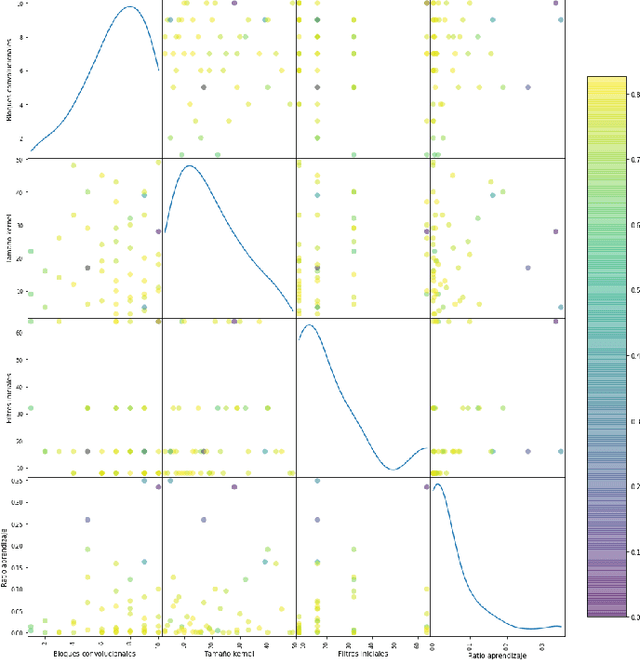
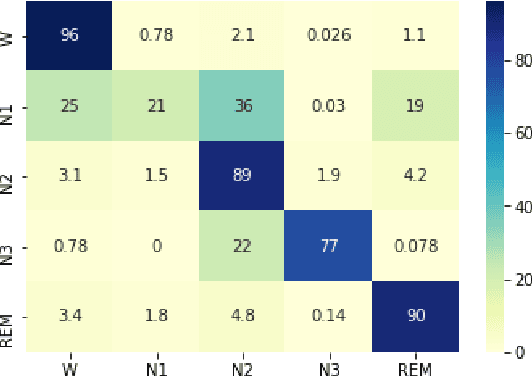
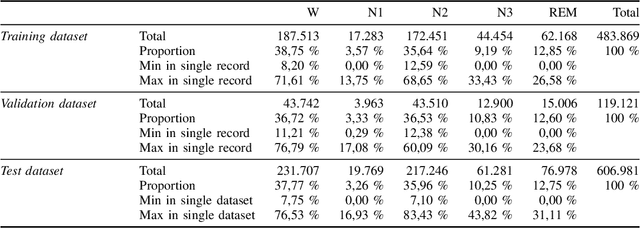
Abstract:Sleep stages classification is a crucial task in the context of sleep studies. It involves the simultaneous analysis of multiple signals recorded during sleep. However, it is complex and tedious, and even the trained expert can spend several hours scoring a single night recording. Multiple automatic methods have tried to solve these problems in the past, most of them by classifying a feature vector that is engineered for a specific dataset. In this work, we avoid this bias using a deep learning model that learns relevant features without human intervention. Particularly, we propose an ensemble of 5 convolutional networks that achieves a kappa index of 0.83 when classifying a dataset of 500 sleep recordings.
Uncertainty in Quantum Rule-Based Systems
Nov 07, 2018



Abstract:This article deals with the problem of the uncertainty in rule-based systems (RBS), but from the perspective of quantum computing (QC). In this work we first remember the characteristics of Quantum Rule-Based Systems (QRBS), a concept defined in a previous article by one of the authors of this paper, and we introduce the problem of quantum uncertainty. We assume that the subjective uncertainty that affects the facts of classical RBSs can be treated as a direct consequence of the probabilistic nature of quantum mechanics (QM), and we also assume that the uncertainty associated with a given hypothesis is a consequence of the propagation of the imprecision through the inferential circuits of RBSs. This article does not intend to contribute anything new to the QM field: it is a work of artificial intelligence (AI) that uses QC techniques to solve the problem of uncertainty in RBSs. Bearing the above arguments in mind a quantum model is proposed. This model has been applied to a problem already defined by one of the authors of this work in a previous publication and which is briefly described in this article. Then the model is generalized, and it is thoroughly evaluated. The results obtained show that QC is a valid, effective and efficient method to deal with the inherent uncertainty of RBSs
 Add to Chrome
Add to Chrome Add to Firefox
Add to Firefox Add to Edge
Add to Edge